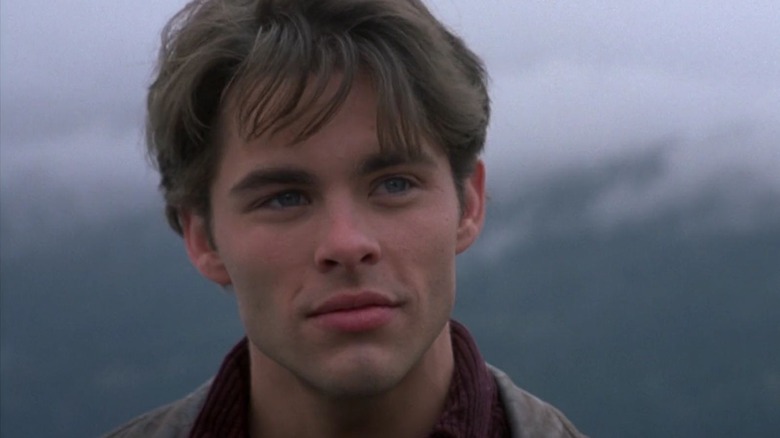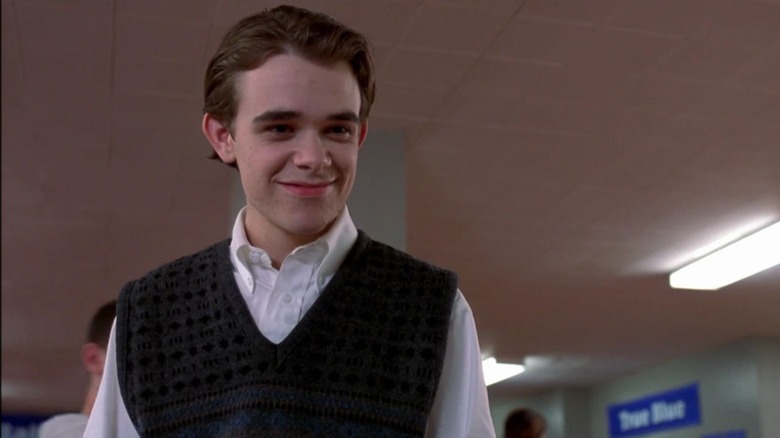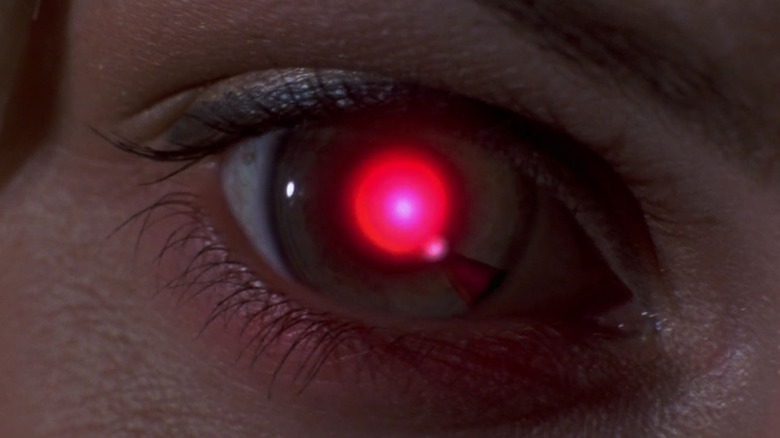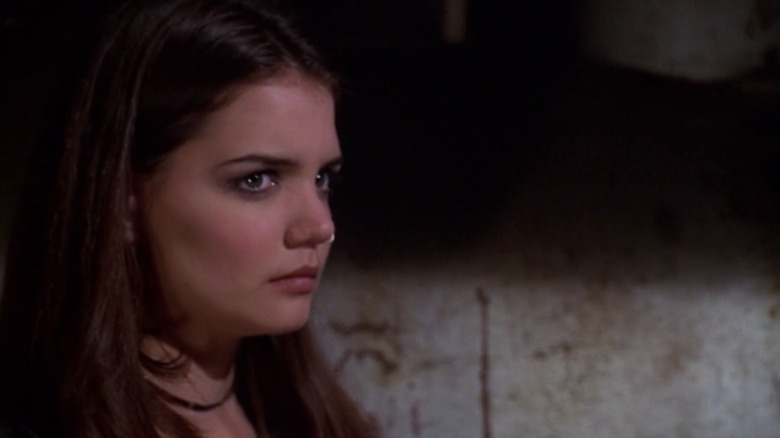A Forgotten '90s Sci-Fi Movie Predicted Gen Z's Nightmarish World
As long as there have been teenagers, there have been troubled teenagers. Adolescence is brutal, a time when people have to learn how to be adults and leave behind their childhoods, all while dealing with raging hormones and a changing body. There are plenty of films about killer teens, capitalizing on adult fears of that turbulent time in their own lives, but what about movies where the troubled teens are the victims and the heroes? Long before the absolutely brilliant "Spontaneous" gave audiences the perfect allegory for surviving school shootings, a messy but star-studded 1998 film dug into just how terrifying it can be to be a teenager. "Disturbing Behavior" is by no means a good movie — studio-demanded cuts made the plot almost nonsensical, and there are some deeply problematic elements — but it did create a "Stepford Wives"-inspired metaphor for surviving high school that's surprisingly apt even today.
The film had a troubled road to theaters that ended with negative reviews and a poor box office showing, but it does have some interesting things to say about how adults can treat teens and their problems. Instead of talking to their kids or trying to actually help them be better people, the parents in "Disturbing Behavior" actually change their kids' brains with reprogramming, which has terrifying implications in our actual world. Many adults already don't see teens or kids as real people, instead seeing their behavior as a problem to be solved. It's a real nightmare, and one that today's teens know all too well.
Reprogrammed teens
"Disturbing Behavior" follows Steve (James Marsden), who moves from Chicago to the small town of Cradle Bay in Washington state after his older brother takes his own life. Forlorn and uninterested in starting over in a new town, Steve falls in with a group of outcasts, including Gavin (Nick Stahl), U.V. (Chad Donella), and Rachel (Katie Holmes). Gavin tells him that something is deeply wrong with the Blue Ribbons, the clique of rich, preppy kids who wear sweater vests and talk like Patrick Bateman, and shortly after that, Gavin ends up becoming a part of the Blue Ribbons, complete with dead-eyed stare and neatly pressed button-down shirt. It turns out that the school's psychiatrist is using a brain implant to make the kids behave, turning them from their real selves into J. Crew catalogue zombies. It's pretty similar to the plot of Ira Levin's novel "The Stepford Wives," in which women who misbehave are changed in a very similar way by oppressors reprogramming them.
Steve and Rachel face some harrowing experiences at the hands of the reprogrammed teens, but the reprogramming in these instances feels just like social conditioning. One of the Blue Ribbons sexually assaults Rachel in the school's boiler room, and the only help she gets is from the school's mentally challenged janitor (William Sadler). She has nowhere to turn except Steve, because the Blue Ribbon's word will always be better than hers. It's a brutal lesson on classism and misogyny, but the real trouble comes when Steve and Rachel are set to be reprogrammed themselves.
Total control
There are many horrors facing contemporary teens in America: School shootings are more prevalent than ever, pregnant teenagers no longer have options when it comes to their own bodies, and LGBTQ+ teens are facing increasingly strict regulations. Adults are trying to control teenagers in every possible way, removing their autonomy and making their choices for them, and that's horrifying. I can only imagine what some conservative lawmakers would do if they could get their hands on the technology in "Disturbing Behavior," creating a perfect army of creepy boring losers who only care about feeding their own egos and upholding the status quo. Even parents and educators who might not otherwise condone or accept this kind of thing might be persuaded by the way teens have been painted in the media, frequently blamed for problems they've only inherited.
Instead of addressing why the teens who act out are doing so, the adults in "Disturbing Behavior" just seek to stop the problem at all costs. Much like schools installing metal detectors and teaching lockdown drills instead of addressing the greater issues that have led to more than 40 school shootings in the past year, the onus of surviving high school intact is placed on young people, and that's not fair or conducive to a decent future for anyone.
Kids deserve better
Most people will only remember "Disturbing Behavior" for its trailer, which featured "Flagpole Sitta" by Harvey Danger, but it deserves mention in the great list of 1990s science fiction films because it tapped into something that was relevant then and is relevant now. This isn't the first story of teens vs. adults by any stretch of the imagination, but it does present a lot of ideas in a pretty blunt way, forcing audiences to confront the fact that teenagers deserve bodily autonomy. There might be a better version of the movie out there somewhere, as director David Nutter ("The X-Files," "Game of Thrones") has said that a director's cut with more than 30 more minutes of footage exists. Instead of a chopped-up flick that doesn't make much sense from scene to scene, there's potentially a killer "Stepford Wives" riff out there with some great young stars that we've never gotten to see.
Maybe one day we'll get that director's cut and learn if "Disturbing Behavior" has any more timeless tidbits about how terrible it is to be a teen. But for now, it's simply a disturbing footnote that's only become more potent with time. It's not as fun as "The Faculty" or as iconic as "Scream," but "Disturbing Behavior" doesn't deserve to be forgotten.



